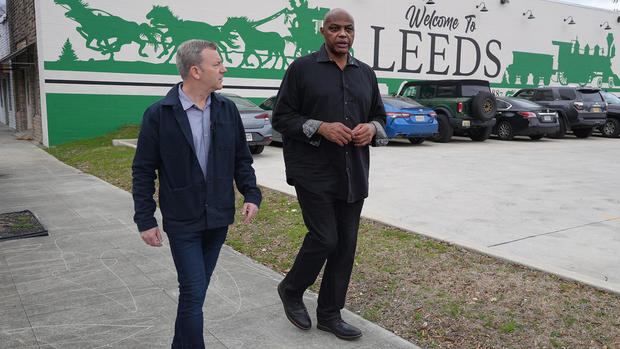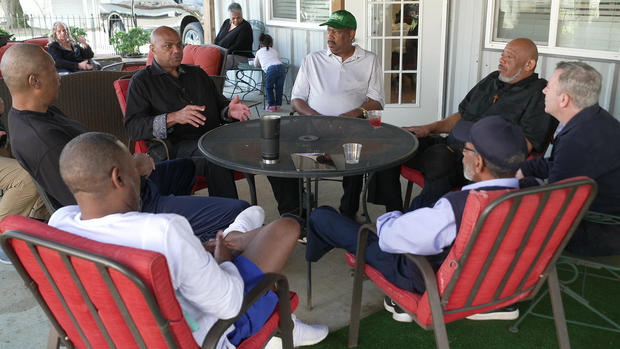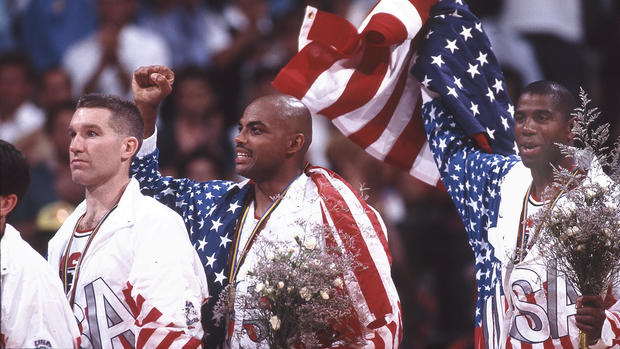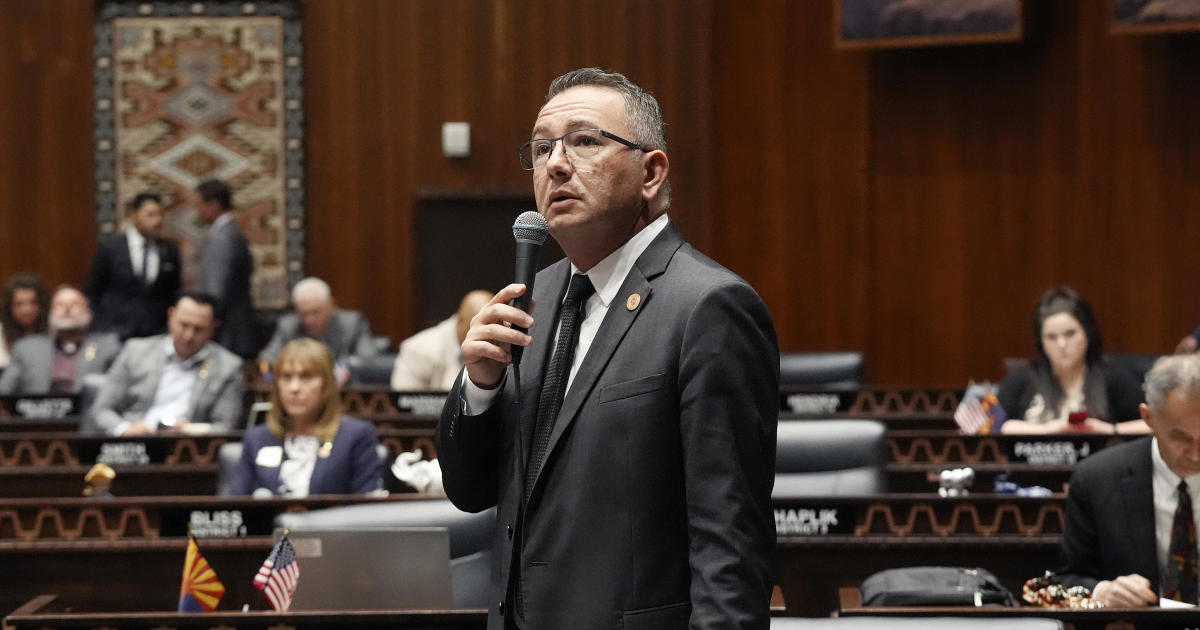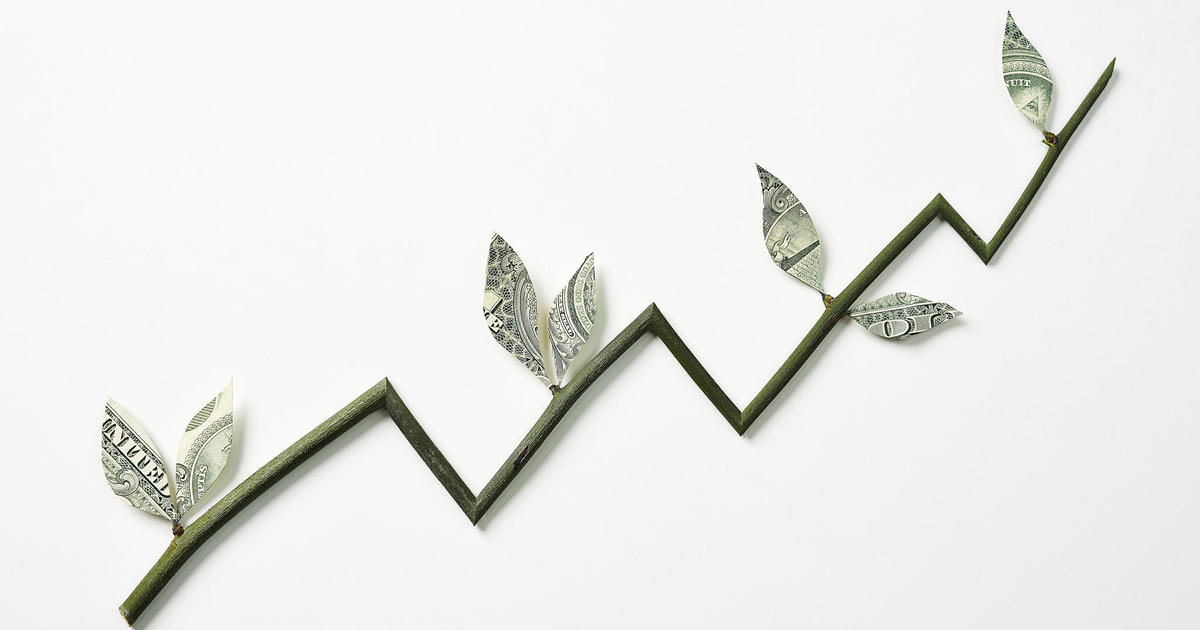Charles Barkley never forgets where he came from
On the basketball court, Charles Barkley was known as an undersized rebounding force, 11-time NBA All-Star, and Hall of Fame player. However, his best move may not have come in the post but post his 16-year playing career where his oversized personality has made him one of the most recognizable sports analysts on TV.
Barkley calls live TV "the most dangerous thing in the world," and his blunt candor is a central part of his brand. When 60 Minutes profiled him for Sunday's broadcast, correspondent Jon Wertheim asked Barkley why people tune in to hear what he has to say.
"I think they know that I'm going to be honest, I'm going to be fair, I don't have a hidden agenda," Barkley said to Wertheim. "[There's] not many people on TV that you can say that about."
The 60 Minutes' team followed Barkley to a taping of "Inside the NBA," where he has worked as a regular studio analyst since 2000. But to get a truer sense of the man, Wertheim also visited Barkley in his hometown of Leeds, Alabama, where he recalled growing up poor.
"We had to pool our money. So I got one pair of shoes [a season], Barkley told Wertheim. "My mom brought them to the game, and right after the game she knocked on the door and took them home. I could only wear them during the season because they had to last me."
One pair of sneakers a season turned into a pair a week when Barkley was drafted into the NBA and Nike came calling.
"I was like, 'This is amazing…Wait, y'all are going to pay me too?'" Barkley recalled with a laugh. "I said, 'This is the greatest job in the world. Y'all are going to give me a pair of sneakers a week and y'all are going to pay me?'"
Despite the sneaker stipend, countless accolades, and sizable paychecks both during and after his playing days, Barkley has never forgotten his roots. At age 60, he's a frequent philanthropist and has donated millions of dollars in support of higher education and college scholarships for Leeds students.
"The way I give money away is, I want to try to help people be successful," Barkley told Wertheim. "Now everybody's not going to be successful. All I can give them is an opportunity to be successful."
Success for Barkley came during his senior year at Leeds High School after a 6-inch growth spurt changed his life.
"His stock on the college basketball market has risen astronomically," Rubin Grant wrote in the Birmingham Post-Herald in 1981. "But just a year-and-a-half ago, brokers would have advised not to buy. Bad risk. Can't bring any dividends.
That was when Charles Barkley was - by his own admission - short and fat at 5 foot, 11 inches, trying to make the Leeds Green Wave varsity team before his junior season. He was too slow to play guard and too short to play forward.
Forty years later, Barkley and his friends from Leeds still gather to relive the tales of yesteryear. With Jon Wertheim joining them on a February afternoon, the group recalled a 1980 high school match-up between Barkley and future University of Alabama star Bobby Lee Hurt.
"That was actually the turning point in my high school career," Barkley said. "We played against the best high school player in the country [Bobby Lee Hurt] in the Minor Christmas Tournament. And at that point, I had never gotten a letter from a major school. This is Christmas of my senior year. It's, like, 'He's too short. He's going to have to go to junior college or a smaller level school.'"
Barkley's friends recalled a packed crowd witnessed his 24 points, 20 rebounds and five blocked shots. Leeds won 74-72 and the doubters became believers. Months later, Barkley committed to Auburn University, where he played three seasons before the Philadelphia 76ers took him in the first round of the 1984 NBA Draft.
Charles Barkley's playing career included an MVP award and a pair of gold medals. His broadcasting career has earned him four Emmys for his work as analyst. But when Jon Wertheim asked Barkley about his successes, he wasn't willing to take all the credit.
"I got picked to be Charles Barkley," the 60-year-old said. "I just got lucky and blessed with a great body. When I'm at a hotel, those people who clean hotels work three times as hard as me and any other jock in the world. We just got the lucky straw. And if you think I'm better or I work harder, you're just stupid."
Barkley shared with Wertheim that he believes the true measure of success comes from the legacies we leave behind.
"There's two things that are important: number one, you want to make your parents proud. And the second thing is, when you die, you don't want them saying, 'I'm glad that SOB's gone,'" Barkley told Wertheim. "I want them to say, 'Man, I'm going to miss Charles.'"
You can watch Jon Wertheim's full profile of Charles Barkley below.
The video at the top was produced by Keith Zubrow and edited by Sarah Shafer Prediger.
